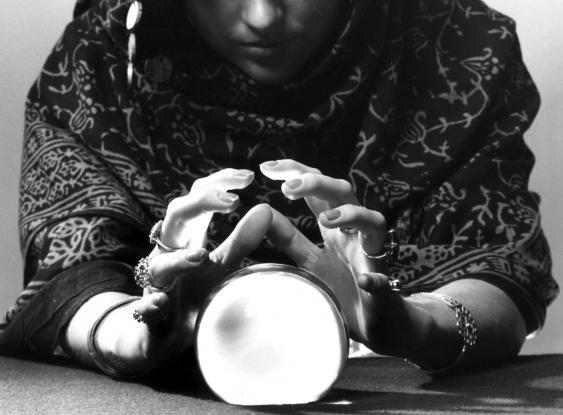What believing in psychics and clairvoyants says about you
A study has tested believers and sceptics with the same level of education and academic performance

Your support helps us to tell the story
From reproductive rights to climate change to Big Tech, The Independent is on the ground when the story is developing. Whether it's investigating the financials of Elon Musk's pro-Trump PAC or producing our latest documentary, 'The A Word', which shines a light on the American women fighting for reproductive rights, we know how important it is to parse out the facts from the messaging.
At such a critical moment in US history, we need reporters on the ground. Your donation allows us to keep sending journalists to speak to both sides of the story.
The Independent is trusted by Americans across the entire political spectrum. And unlike many other quality news outlets, we choose not to lock Americans out of our reporting and analysis with paywalls. We believe quality journalism should be available to everyone, paid for by those who can afford it.
Your support makes all the difference.People who believe in psychic powers have fewer analytical and logical abilities than sceptics, a new study has found.
Believers and sceptics, aged between 18-25, were tested on their memory accuracy, memory retention and analytical abilities, the British Psychological Society reports.
Stephen Gray and Dr David Gallo from the University of Chicago tested sceptics against believers between the ages 18-25 – all with the same years of education and academic performance.
The paper published in Memory and Cognition found there was no difference between the groups' memory recall or accuracy.
However, sceptics outperformed believers in evaluating arguments, logic tests and vocabulary tests.
This difference was not due to low motivation as both groups scored the same on the "need for cognition".
The psychologists concluded: "Our cognitive testing showed that there were no consistent group differences on tasks of episodic memory distortion, autobiographical memory distortion, or working memory capacity, but skeptics consistently outperformed believers on several tasks tapping analytical or logical thinking as well as vocabulary."
While the research does not prove poor analytic abilities lead to believing in psychic powers. These results are consistent with the theory that the lack of these skills makes the person more prone to these beliefs.
An interesting result of this survey was that psychic believers scored higher on life satisfaction.
Join our commenting forum
Join thought-provoking conversations, follow other Independent readers and see their replies
Comments